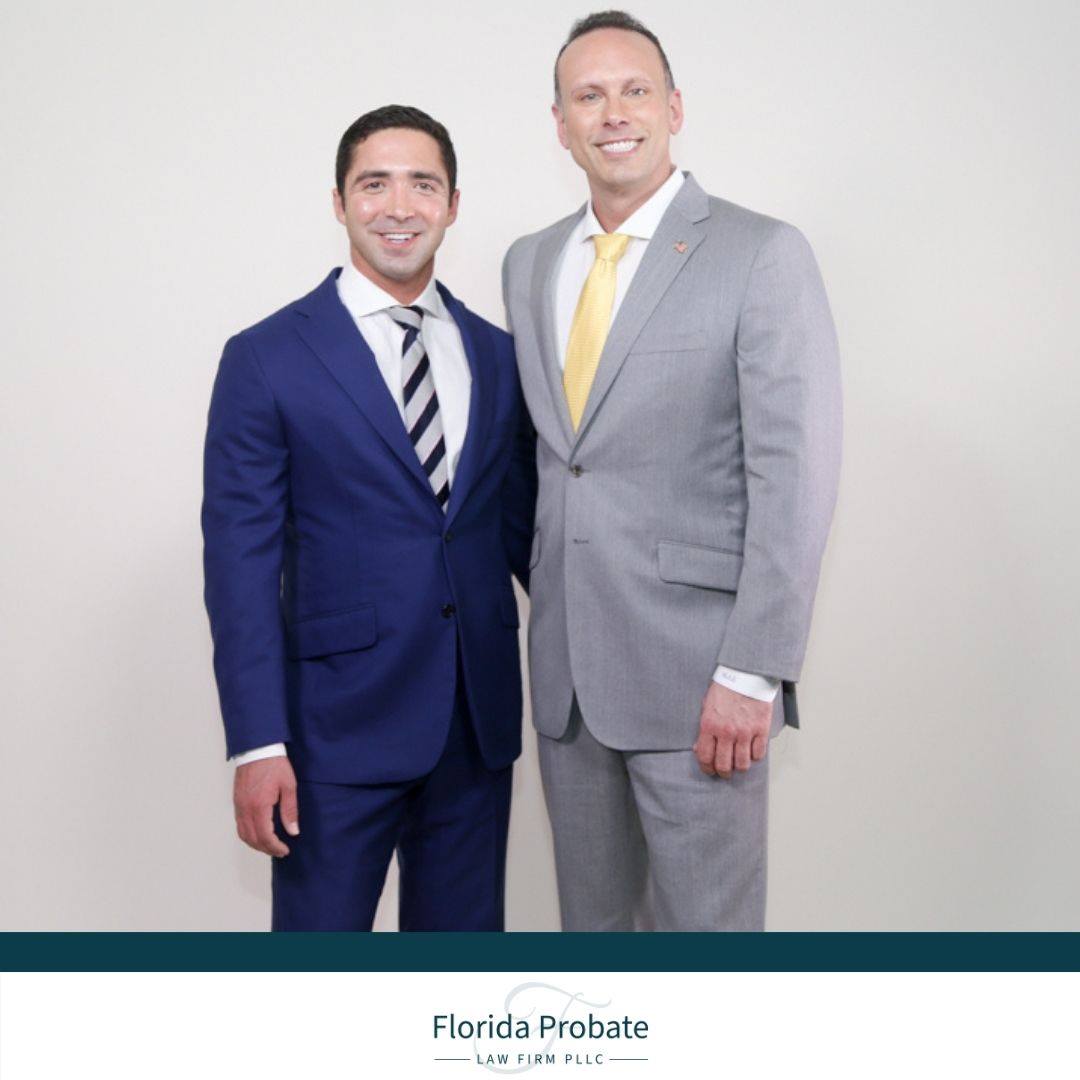Probate Lawyer Fees
You may have heard that probate is a time-consuming and expensive process that should be avoided if possible. But what does the actual cost of probate look like? What fees can you expect if you hire a Florida probate lawyer?
Understanding the cost of probate can help you decide if you should pursue a simplified probate, as long as the estate qualifies for such a process, or whether you need to work with an experienced probate lawyer to handle the administration.

Who Pays the Probate Lawyer’s Fees?
The estate is responsible for the legal fees and administrative expenses associated with the probate process. This means that the decedent’s assets, that become part of the probate, are to be used to pay for the expenses, or at least to reimburse anyone that initially pays the necessary expenses of initiating probate or taking care of estate property.
These designated expenses are to be paid “off the top” of the probate assets, so all beneficiaries share equally in the burden of administering the estate, and no particular person’s inheritance is impacted more than anyone else’s. The probate lawyer’s fees will be taken out of the estate before remaining assets and property are distributed to heirs.
It is often reassuring to know the personal representative—aka executor—is not individually responsible for covering the expenses from their own money, nor is it only their share of the inheritance which is impacted by the fees.

How Much Does a Probate Attorney Cost in Florida?
Not all estates require a probate lawyer. If an estate is small enough to qualify for a simplified probate process, known as a summary probate administration, then they are not required to hire an attorney to handle the process. However, many beneficiaries or family members find the complicated rules and red tape of the probate court too burdensome to tackle without guidance. In FL, the vast majority of probate administrations are “formal probates”, and FL law requires you to hire an attorney to initiate a formal probate, and that attorney must be designated as attorney of record.
The probate attorney will be responsible for the estate meeting the necessary filing requirements, and for providing guidance throughout the probate process. The most important filing requirements are:
- 1. Filing the inventory within 60 days of obtaining the Letters of Administration
- 2. Serving the inventory on all beneficiaries via certified mail and filing proof of service
- 3. Initiating the publication of notice to creditors
- 4. Serving notice to creditors on the Agency for Health Care Administration (ACHA)
- 5. Filing a petition for discharge and final accounting, which will be served on all beneficiaries via certified mail, unless they execute a waiver and consent.
A probate attorney can help with many complex issues ranging from will disputes, tax liability, finding estate assets, obtaining appraisals, creditors, and transferring assets. An experienced probate attorney, will be familiar with the unique procedural rules in each county.

While the benefits of hiring a probate lawyer may be clear, what probate attorney fees should you expect?
When you hire a probate attorney, you will have two costs:
- · Attorney legal fees
- · Probate costs or expenses (example: filing fee, cost of publication of notice to creditors, cost of certified mailing, cost of certified copies from the probate court).
The most important and significant probate expense is the fee the probate lawyer charges. Depending on the lawyer, these fees may be hourly, flat rate, or based on a percentage of the estate. Lawyers are allowed to choose how they charge for their services, so you will need to have a consultation in order to determine how any particular attorney charges for their time. You should also be provided with a written contract outlining the details of the engagement/representation. In a typical Florida probate proceeding, attorney’s fees are usually the largest expense.
In addition to the attorney’s fees, you will also pay costs or expenses related to the probate process. The attorney usually collects the money for these costs directly from you, either in the form of an initial deposit, or after the fact as a reimbursement. Common probate expenses include:
- · Court filing fees ($300 to $400)
- · Certified postage fees for notification to creditors and beneficiaries
- · Publishing fees for legal notice in local newspapers ($100-$250)
- · Appraisal fees for real estate and high-value property
- · Formal accounting fees
“Reasonable” Attorney Fees Under Florida Probate Code
If there are any disputes about whether a probate lawyer’s fees are reasonable and should be approved, consult Florida Probate Code Chapter 733 as a starting point. Florida probate law clearly lists fees that are presumed reasonable based on the value of the estate.
The homestead real property (real estate) owned by the decedent is not included in the estate’s compensable value for purposes of determining reasonable compensation for ordinary services according to the abovementioned statute. However, “reasonable” fees are based on the gross value of probate assets, not the net value of the assets. If the estate contains a vacation home valued at $350,000 but there is a mortgage of $200,000, Florida probate law allows a reasonable fee based on $350,000, not the $150,000 in equity.
In addition to the fee for ordinary services based on the estate’s compensable value, Florida Probate Code provides for compensation for an attorney’s “extraordinary service” such as contesting a will, tax advice, and handling real estate or homestead property.
Be aware that these fees work as a guideline and they are not required by Florida law. Probate lawyers may set their rates based on this reasonable fee schedule, but they may also set their rates depending on the level of expertise they bring to the case.
When you hire a probate lawyer, a fee agreement in writing is a smart way to not only protect yourself but understand what fees you can expect. This agreement will state how the attorney charges for the legal services (based on hours, fixed rate, or a percentage), when payment is due, and the costs you will be responsible for, such as filing fees.
The probate attorney’s fees you pay are usually well worth it. Probate is a time-consuming process and executors have many tasks that must be completed for the probate case to be closed. If you are not comfortable preparing and filing court-required documents, do not have time for what very well may become a part-time job, and want to ensure every step and document is completed properly, your probate lawyer will be an invaluable asset.

Florida Probate Law Firm Can Help You Through the Entire Probate Process, at a Fair Cost to You and Your Family
Do you need help with probate as an executor or personal representative? Contact the Florida Probate Law Firm, PLLC for a free 30-minute consultation. We help families through the Florida probate process with services tailored to your individual needs.
We often work with families so that our invoices are paid directly from the decedent’s assets, such as bank accounts or the sale of the decedent’s residence, in order to minimize out of pocket expenses for the family to whatever extent possible.
Schedule your free consultation with Florida Probate Law Firm by filling out our contact form below.

